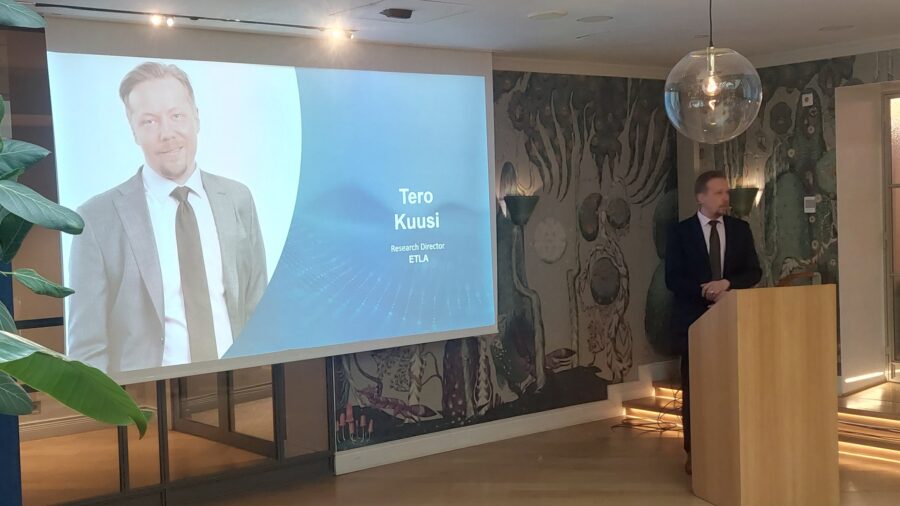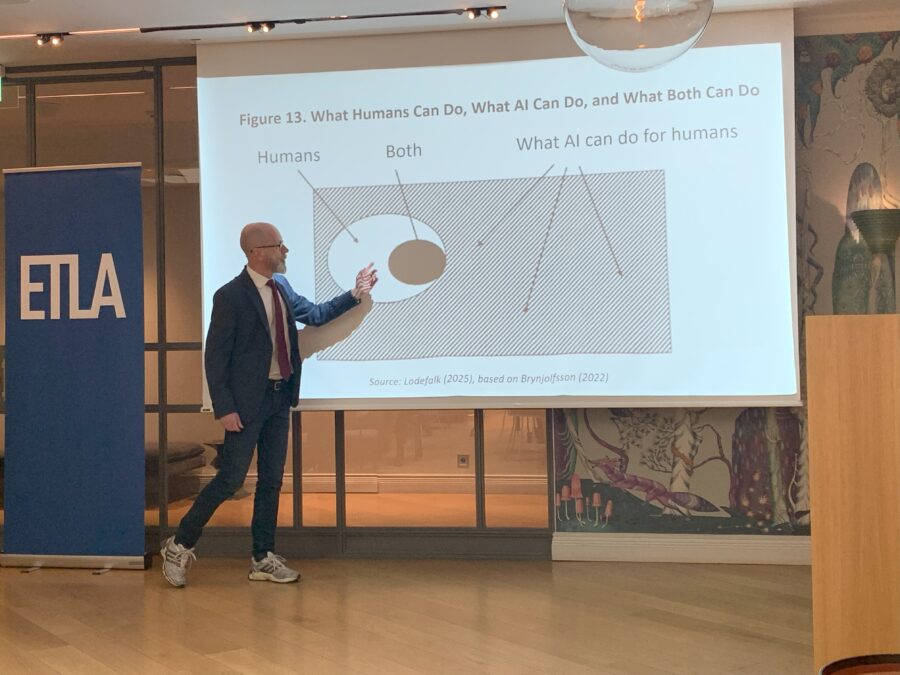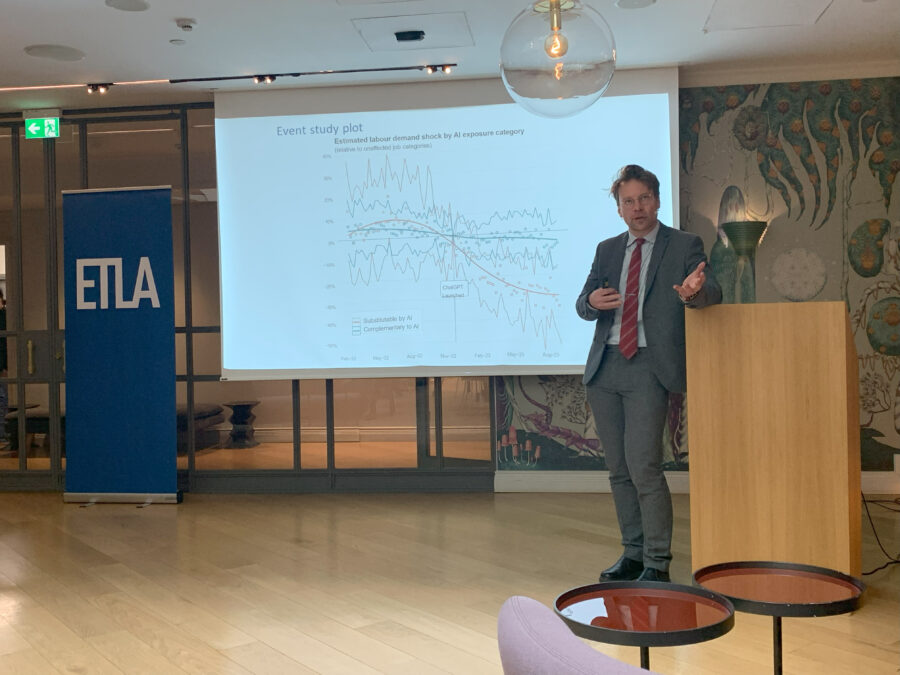The Cartagena-seminar organized by Etla on Wednesday, May 14, explored the impact of artificial intelligence and the changes it brings, particularly in the world of work. The multi-year Cartagena research project by Etla produces knowledge on the transformative forces shaping business operations and labor markets, as well as the welfare effects of innovation. The seminar presented the results of several sub-studies from the project. The event could be followed at the Wintergarden in Helsinki or via live stream.
The seminar was opened by Etla’s Research Director Tero Kuusi, who introduced the Cartagena research project funded by Business Finland and shared findings from AI-related studies.

The keynote speech was delivered by Associate Professor Magnus Lodefalk from Örebro University, co-director and founder of the AI-Econ Lab. His research focuses on the drivers and barriers to business growth and how these factors influence employment, wages, and economic growth.
In his talk, Lodefalk discussed the effects of AI on working life, stress and inequality.
According to Lodefalk, AI is changing working life in many ways.
“With the advent of AI, we can expect new jobs, new tasks, and even entirely new industries,” he stated.

He explained how AI can affect employee stress by changing job demands, content, duration, tools, and collaboration with colleagues.
The Nordic countries have an advantage when it comes to AI, and technological development is seen as a path toward growth and well-being. However, a key concern is whether AI will increase inequality, Lodefalk concluded.
The seminar continued with a presentation by Etla researcher Otto Kässi, who shared recent research findings on the future of work, careers, and employment. For instance, the arrival of ChatGPT did not have a negative impact on labor demand.

The final presentation was given by Principal Scientist Kaisa Lähteenmäki-Smith from VTT. She introduced another ongoing AI research project and its preliminary results.
The event concluded with a Q&A session, where Lodefalk answered questions from the audience.
The seminar was hosted by Etla’s Head of Communications and Media Relations Tytti Sulander.
The recording is now available to watch in this article or on Etla’s YouTube channel.
27th of May 2025 at 3pm: Video has been edited